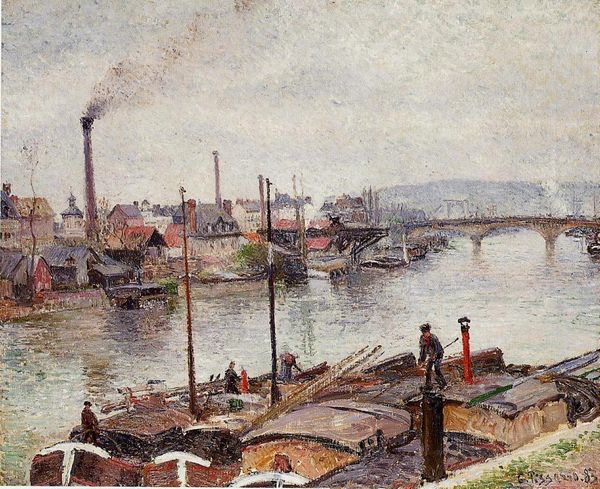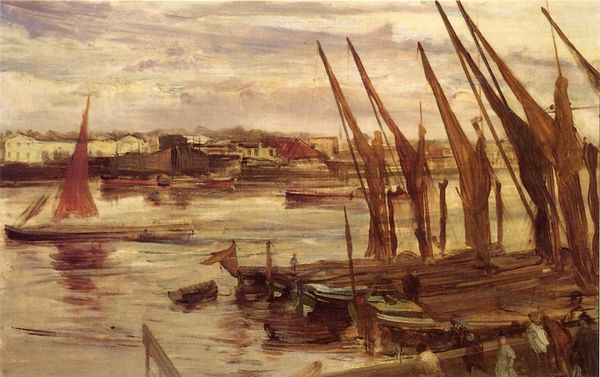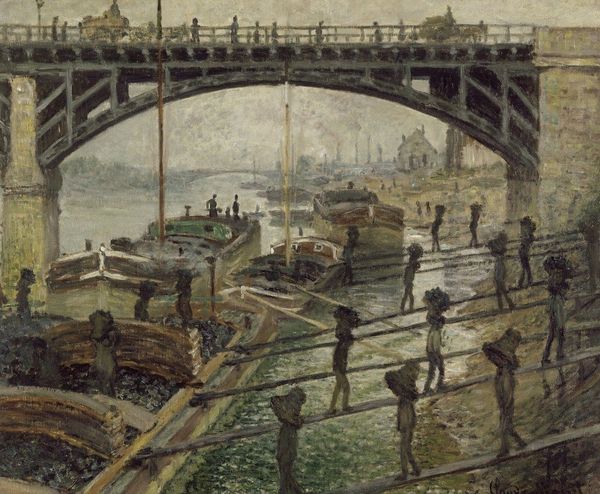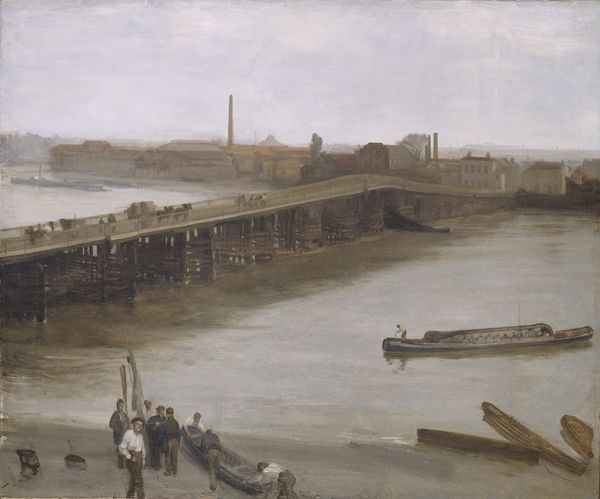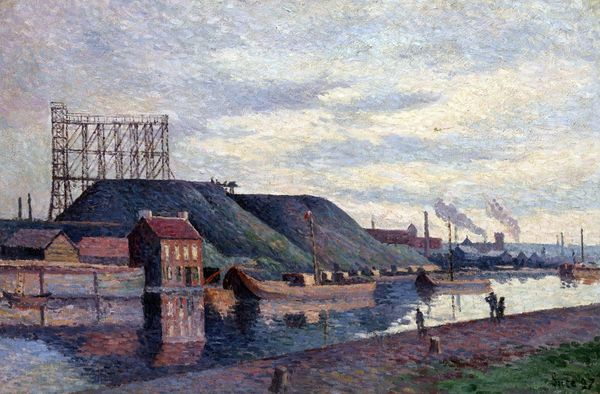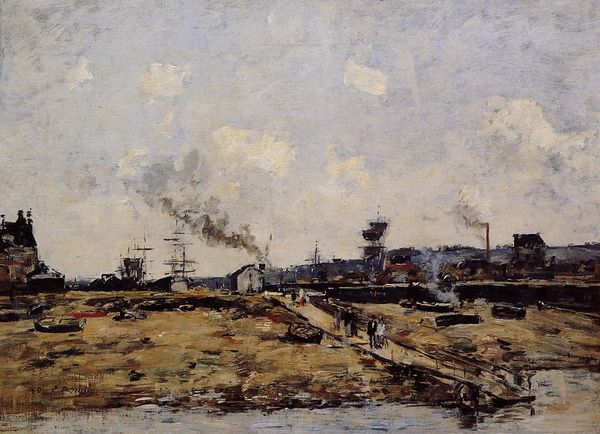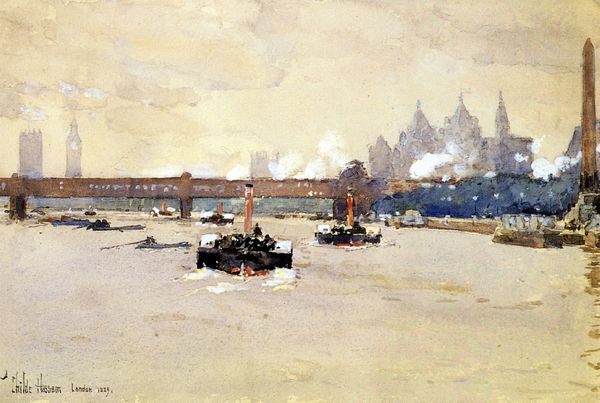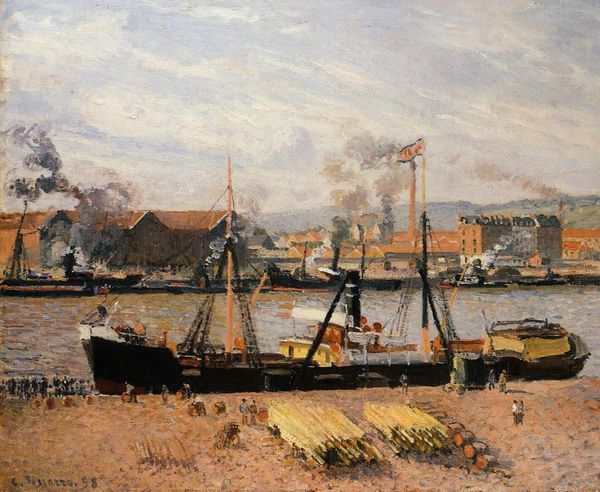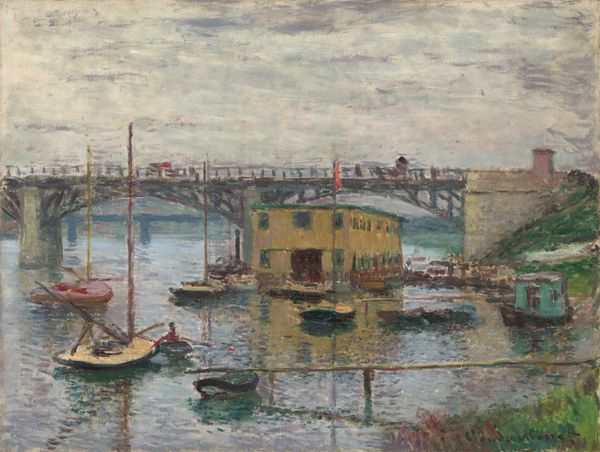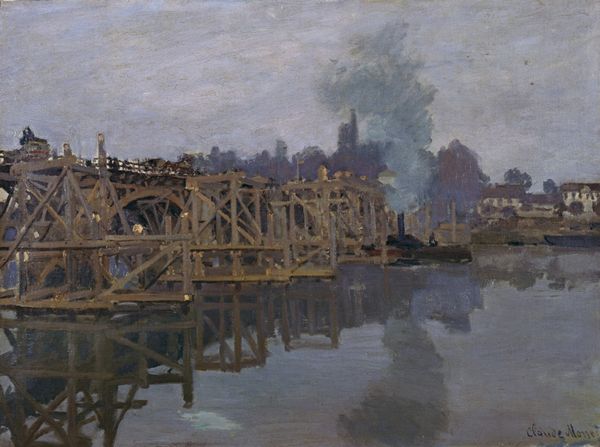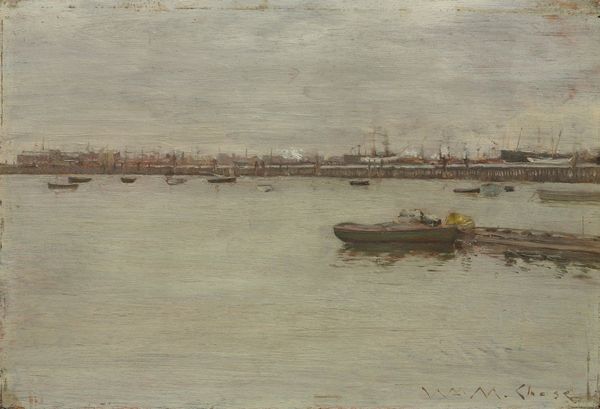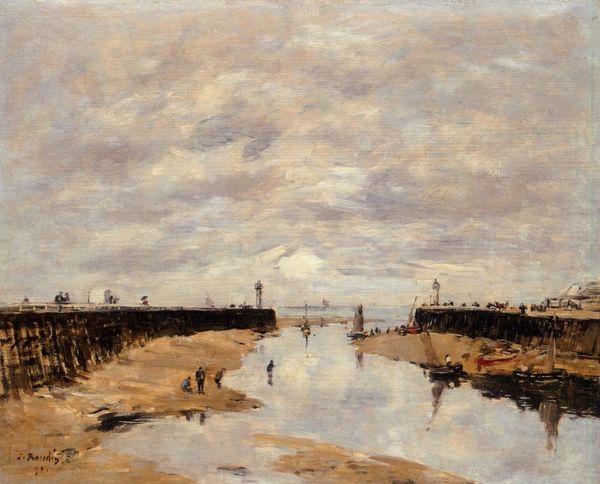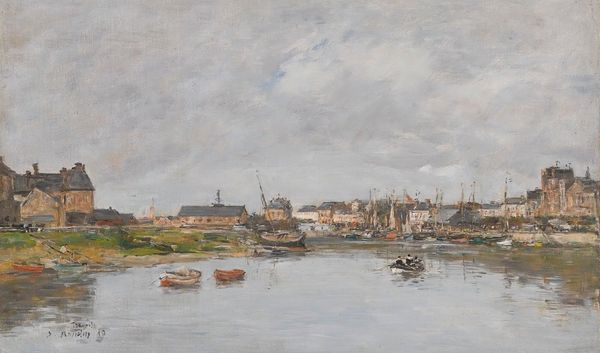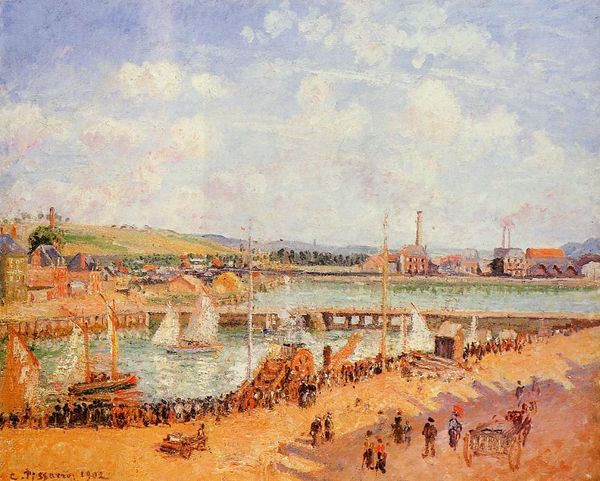
Dimensions: 60.96 x 77.47 cm
Copyright: Public domain
Curator: Ah, here we have James Abbott McNeill Whistler's "The Last of Old Westminster," an oil on canvas painted in 1862. Editor: A somber scene, isn't it? Almost monochromatic, a brown study of labor and loss, like a memory fading. Curator: It depicts the demolition of the old Westminster Bridge. You know, Whistler was quite taken with the Thames, its moods, and how they mirrored the changing city. This feels almost like a eulogy. Editor: Bridges are always potent symbols—connection, transition. But a bridge *being* destroyed? It speaks to disruption, of severing ties with the past in the relentless march of progress. The almost indistinct figures on the bridge add to the symbolic sense that people were tiny against that transition. Curator: I love that! It's said Whistler painted this en plein air, capturing the immediate, fleeting atmosphere. See how the brushstrokes are so loose, almost dissolving the forms into the misty light? Editor: Indeed. The palette, limited as it is, emphasizes the grit and grime of industrial London, and also the more painterly themes of memento mori. The entire scene evokes a sense of something grand being reduced to rubble. It really captures the psychological weight of urban renewal. You also have an implied passing of time reflected through a depiction of ruins and construction simultaneously in the background versus the front. Curator: I agree. And look how the geometric rigidity of the bridge contrasts with the fluid, reflective surface of the Thames. There’s this dialogue between permanence and ephemerality. Editor: Whistler understood how to charge a seemingly simple scene with meaning. You feel this sense of loss but it does not dwell in a romantic depiction of ruins, or an explicit lament for what is past; it just presents a record that invites meditation about memory and time itself. Curator: Well said. For me, this painting is about finding beauty in transience. Editor: Absolutely. And reminding us that even in the most bustling metropolis, there's always an undercurrent of elegy.
Comments
No comments
Be the first to comment and join the conversation on the ultimate creative platform.
